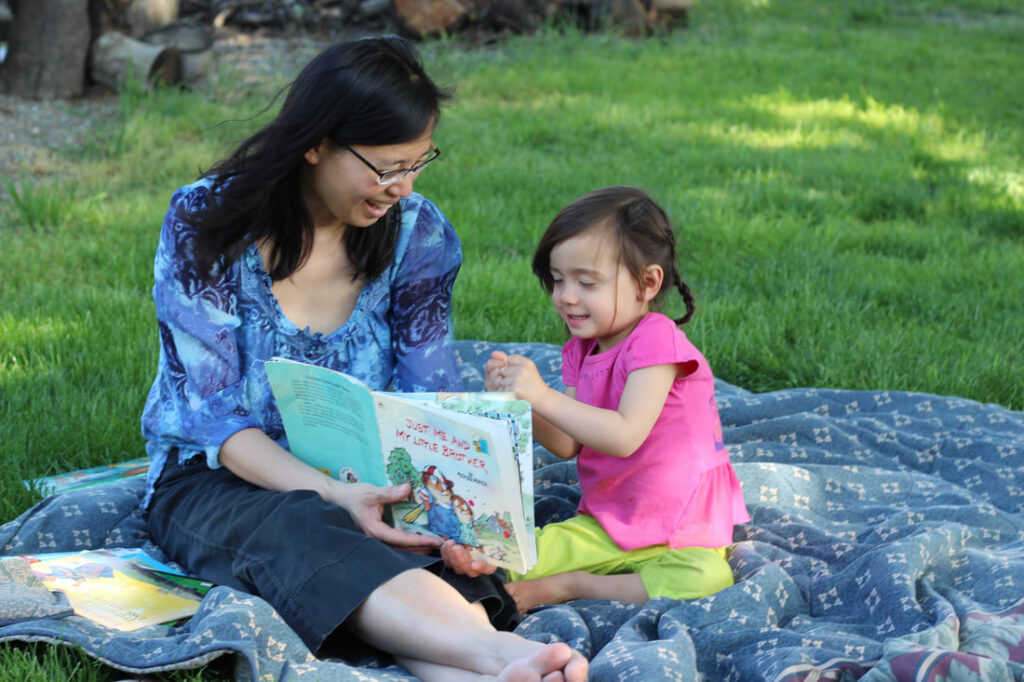Why Belonging Matters to Children

Belonging is at the heart of human relationships—it is essential to what we are doing here, building a community that sustains life on earth.
You might say it is the soul of the human race: “It is not good to be alone.”
Or you could listen to how Brene Brown says it: “Connection is why we are here. We are hardwired to connect with others, it is what gives purpose and meaning to our lives, and without it there is suffering.”
Belonging begins for every child in those relationships where their physical needs are met, usually their parents. That sense of belonging within family is primal and when it is given sparingly or on conditions that are hard to achieve, it produces pain rather than the delight we are made for.
Connection and trust in childhood begins with food and basic care, but it is developed and becomes endlessly richer by the sharing of language.
Communication.
Family jokes, sayings, and familiar prayers all create a culture that says “we are us.” Or as Ellen Pompeo says it as Meredith in Grey’s Anatomy, “You are my person.” We belong to each other.
Sometimes we move our families out of their familiar “nest” of neighbourhood, home, routines, friendships, and relatives—and take them across the world for any one of many possible reasons.
But if a new job in a new location and a new set of challenges distract mom and dad from the family’s needs, children may see the new language and culture as something to be feared or rejected.
It helps if the new language you want to embrace becomes a part of family fun and culture despite the many changes.
Bring a few special words that might not exist in your “mother” tongue into the house and play with them…engaging the language as a family, as a community, not just as serious students.
For example, when our family moved to North Africa we discovered the very wonderful word “shleka” for all slip on shoes. Say it out loud once and see what I mean…could there be a better word for floppy foot wear you “shlek” around the house in? And we could easily have used the word “squeegie” for the thing we cleaned our tile floors with—close enough to the gas station window cleaner but on a longer stick. Instead we adopted “seleta” and used that word for years even when we moved to another town that used a different word. “Seleta” was “our” word.
Most important of all, we needed to learn the local polite phrases for the sake of social integration. So to practice them, we used them even when we were alone. “Bishfeh” when you gave someone a drink, and “Yishfik” in reply. There was also the very fun word “SaHa.”—you said this after someone had eaten or enjoyed a drink—could there be a better sounding word for that? Then we learned how to say it more specifically for other times, in response to a nap, a haircut, or a new purchase—we needed to say this to be socially appropriate. Practicing at home was part of the fun.
It’s a good idea to incorporate these words in a fun and playful way because it connects that sense of belonging to the new language, inside the safest place for a child to learn anything—home.
At this time our kids need more than ever to know that they still belong: that this set of family connections will never be broken. This becomes their stability in the crazy whirl of leave-taking, travel, and re-settling. A maze of broken connections requires the central anchor of family to remain more reliable than ever before.
“Children learn fastest when they are in a safe place having fun, often unaware that they are even learning something new.”
Don’t be too worried if your children start off saying these words with a bit of an accent. That should wear off within about three months provided they get enough exposure to native speakers. Children who learn a new language under the age of 8 will normally sound like it was their first language. The ability to hear and produce sounds accurately is still alive, if not quite as quick as it once was.
If you don’t have much energy for a lot of extras when you are settling in a new place, make your family a priority.
Guard your time of attention, affection and fun together. When you play together, you fill everyone’s inner barrel of reserves because family is meant to fulfil and emotionally satisfy us when we do it well. As a wise elder from the North American aboriginal people observed: “The universal longing for human bonds is cultivated by a relationship of trust.” (Martin Brokenleg).
Help your children trust that a new language and culture is a good thing by embracing it as a family, with togetherness. You will be glad that you did.
– Elaine Thiessen
Do these ideas about belonging resonate with your family’s experience? Leave us a comment with your story or email us.
Looking for resources to help your family belong in another language and culture? Try our Language Mama Planner for an integrated approach to second language learning into your home. It includes all the ideas you’ll need to start playing with your children in areas of etiquette, daily routines, children’s games, songs and stories.
